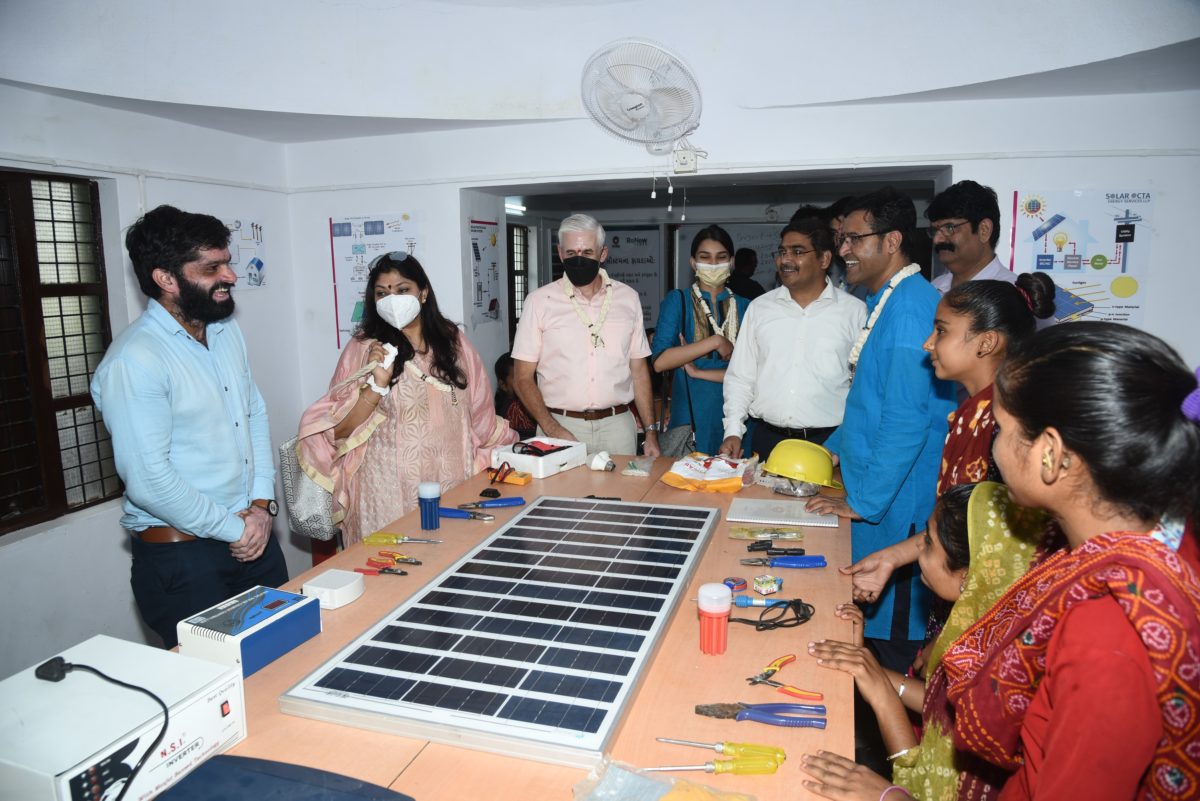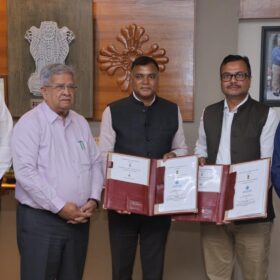ReNew Power (ReNew), India’s leading renewable energy company, and Self-Employed Women’s Association of India (SEWA) have partnered to train low-income women salt pan workers in Gujarat as solar technicians under a transformative initiative named ‘Project Surya.’
The initiative is supported by the United Nations Environment Programme (UNEP).
ReNew will provide financial support and familiarization with its renewable facility in the area, while SEWA is the lead implementation partner. UNEP will monitor and evaluate the project.
Women salt pan workers work in the physically challenging and extreme temperatures of the remote Rann of Kutch marshes. This program is intended to train them as solar panel and solar pump technicians at Dhokavada village in the Patan district of Gujarat.
Currently, these women save an average of INR 10,000 ($128) in around 10 months, while a solar panel technician can earn up to INR 18,000 (US$ 130) a month.
The program will start with training 60 women. Eventually, around 1,000 women will be skilled in the new clean energy transition roles. The Government of India’s National Skill Development Corporation will also support the program.
This unique and inclusive project will address multiple Sustainable Development Goals under one umbrella, including no poverty, gender equality, affordable and clean energy, decent work, economic growth, and climate action.
Vaishali Sinha, chief sustainability officer, ReNew, said, “This program brings these inspiring women, who face real hardship in a traditional livelihood and earn a meagre income, into the heart of the clean energy transition to better their lives and brings them into the fight against climate change. This program, that is scalable, is sustainability from the ground up, rather than top-down, and we are proud to partner with UNEP and SEWA to support this.”
“This is just one effort, and we need many more such multiple stakeholder programs across the corporate sector to accelerate the energy transition and, equally important, make it more just and diverse.”
This content is protected by copyright and may not be reused. If you want to cooperate with us and would like to reuse some of our content, please contact: editors@pv-magazine.com.









By submitting this form you agree to pv magazine using your data for the purposes of publishing your comment.
Your personal data will only be disclosed or otherwise transmitted to third parties for the purposes of spam filtering or if this is necessary for technical maintenance of the website. Any other transfer to third parties will not take place unless this is justified on the basis of applicable data protection regulations or if pv magazine is legally obliged to do so.
You may revoke this consent at any time with effect for the future, in which case your personal data will be deleted immediately. Otherwise, your data will be deleted if pv magazine has processed your request or the purpose of data storage is fulfilled.
Further information on data privacy can be found in our Data Protection Policy.